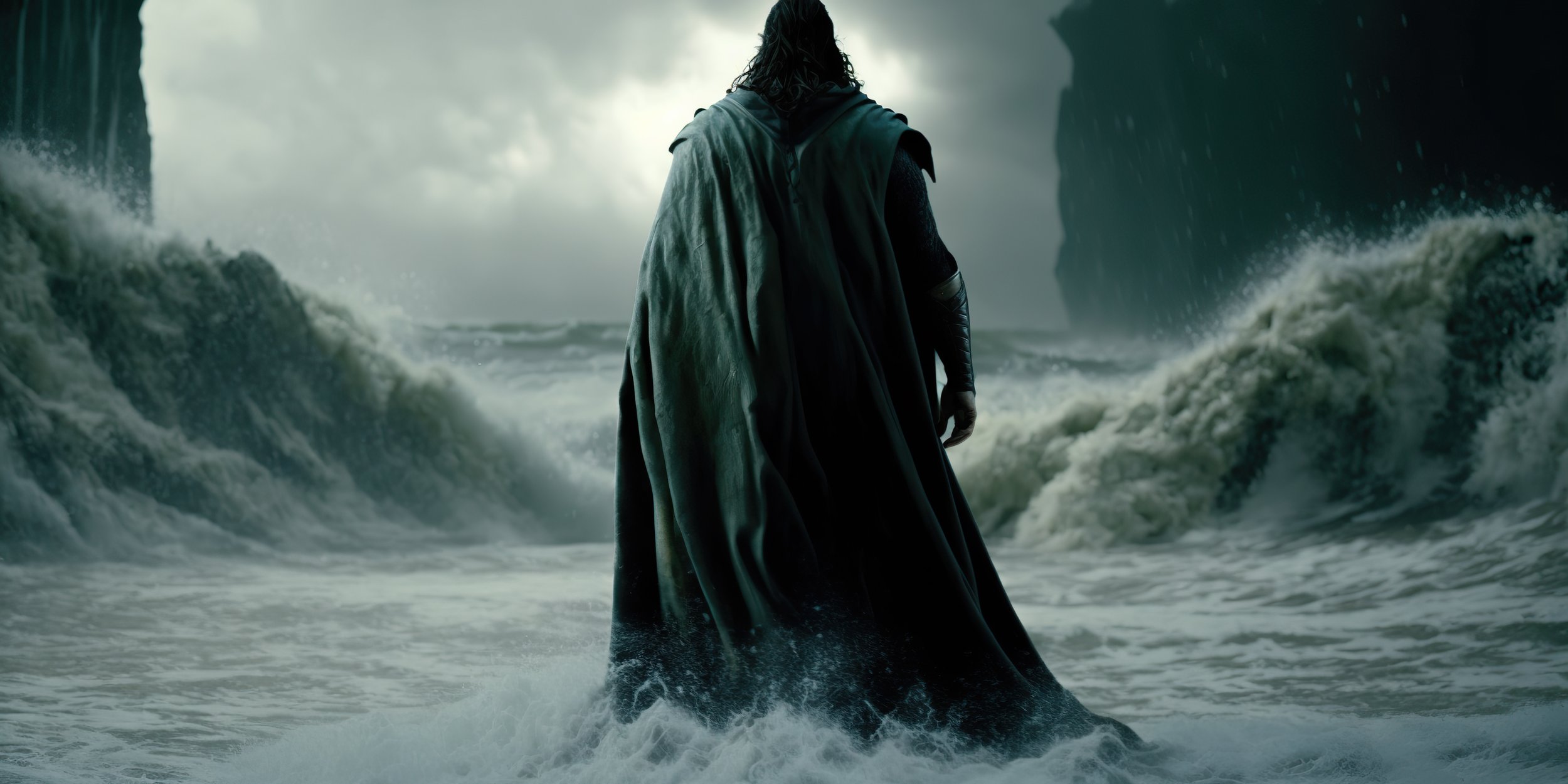
POSEIDON

GOD OF THE SEA

A tale of three brothers
According to Greek mythology, the governance of the world was determined by three brothers—Poseidon, Zeus, and Hades—through a divinatory casting of lots. Each was assigned one of the three realms of existence. Zeus, drawing the skies, ascended to the position of the king of the Gods. Hades, assigned the realm of the afterlife, and Poseidon, gifted the dominion of the seas.
What the legend neglects to mention, however, is a subtle yet significant detail: despite Zeus being the elder sibling, it was Poseidon who was the mightiest of the gods. If not for his inherent sense of honor, he could have easily claimed all three kingdoms for himself. A decision steeped in nobility, yet one that Poseidon would come to rue as time wore on...

Ruler of the waves
Poseidon, the revered ancient Greek deity of the sea, had an inextricable bond with the oceans, forming the bedrock of his identity and his formidable powers. As the sovereign of the seas, he was attributed with dominion over the aquatic realms, commanding the undulating waves and the myriad creatures residing beneath their surface.
His influence extended to terrestrial phenomena as well: he was closely associated with earthquakes, symbolized by the trident he perennially wielded, an instrument capable of stirring seismic upheavals and manipulating water at will.
Beyond his aqueous jurisdiction, Poseidon was revered as the patron deity of navigation and commerce. Sailors and merchants would invoke his name, seeking his divine protection on their water-bound journeys. In a testament to his versatility, he was credited with the creation of the first horse, born from the earth struck by his mighty trident.
His mastery over the elements also included the control of precipitation. He could summon rainfall to quench parched lands or induce drought to test the resilience of mortal beings. It was even believed he could conjure water from the very air, underscoring his absolute authority over the element of water.

THe restless Sea
Poseidon, the tempestuous god of the sea, was as unpredictable as the ocean tides he ruled over. Known for his turbulent temper and brooding moodiness, he was a force to be reckoned with, a deity who could stir up storms with his trident and calm the seas with a mere wave of his hand. This mercurial demeanor earned him an infamous reputation among the gods, casting a shadow of uncertainty over his relations with others.
Particularly fraught was Poseidon's relationship with his brother, Zeus, the king of the gods and ruler of the sky. Both immensely powerful in their domains, their interactions were often marred by a relentless struggle for terrestrial dominion, a desire to extend their influence beyond their designated realms. Zeus, with his thunderbolt, would stake claim to the skies, asserting his power with flashes of lightning and deafening roars of thunder. Meanwhile, Poseidon, with his mighty trident, would assert his control over the oceans, creating colossal waves and summoning violent storms. Their struggle was not just a sibling rivalry but a celestial power play, with the earth as their battleground.

Worshipped by all
As ruler of the oceans, Poseidon created Atlantis, a splendid nation fashioned in his divine image. This remarkable civilization, in its time, stood as the pinnacle of human achievement, radiating a beacon of hope and inspiration.
Atlantis was a testament to the potency of Poseidon's vision, a harmonious fusion of his power and humanity's potential. A wonder to behold, it was a civilization teeming with advanced knowledge, flourishing arts, and enlightened governance, embodying the divine aesthetics and principles of its patron.

THE RISE AND THE FALL
For a millennium, Poseidon gazed upon his creation with contentment at the grandeur of Atlantis. Despite this, over the last few generations Poseidon witnessed something rotting at the core of his creation… His main solace was that at the same time, Aphrodite, the goddess of love and beauty, began frequenting the temple dedicated to Poseidon in Atlantis. As the corruption and his futile attempts to stop it in Atlantis grew, he and Aphrodite withdrew from the capital, to live in a little villa overlooking the ocean as mortals. They managed to do so blissfully for a number of years, until the darkness coming over Atlantis became too much to bear, and he returned to the capital with Aphrodite…

The love of the Sea
Contrary to the romantic exploits attributed to him, and much like Aphrodite, Poseidon's adventurous love affairs were mere fabrications of Greek bards' imaginations. As many other Greek gods retreated into the shadows of obscurity, Poseidon endured, his legend resonating long after the grandeur of Mount Olympus crumbled into antiquity.
Despite the tales woven in Greek mythology, Poseidon remained steadfastly loyal to his secret wife, a truth often overlooked in the grand narrative of his life. This enduring fidelity bore fruit around 9600 BC, when they were blessed with a son, Atlas.
Tragically, all too soon after, an unfamiliar luminescence pierced the canvas of the night sky, ushering in the end of an ice age, and the legendary fall of Atlantis.

To save a son
Knowing the time of Atlantis was at an end, Poseidon created an Ark… In which he put his and Aphrodite’s son, to be sent to the future, to more, amenable times. It was perhaps the last act of Ancient Atlantis, to send its future Emperor into the future to ensure that Atlantis would never die. Poseidon had through his life also controversially formed the theory that water on Earth was alive, and he called on this entity, Aqua, to always protect his son.








